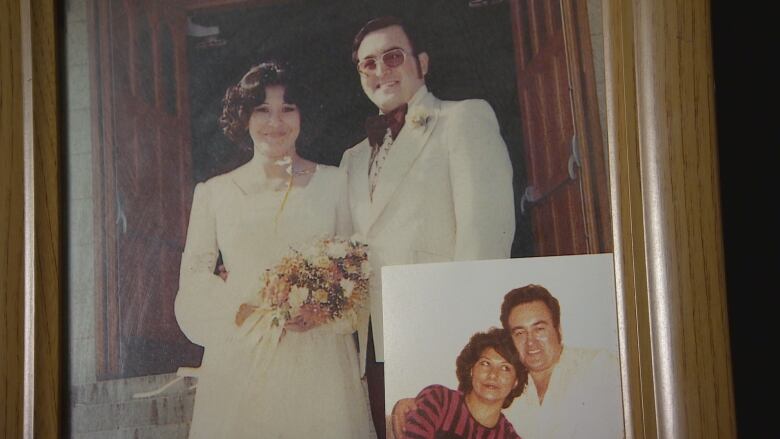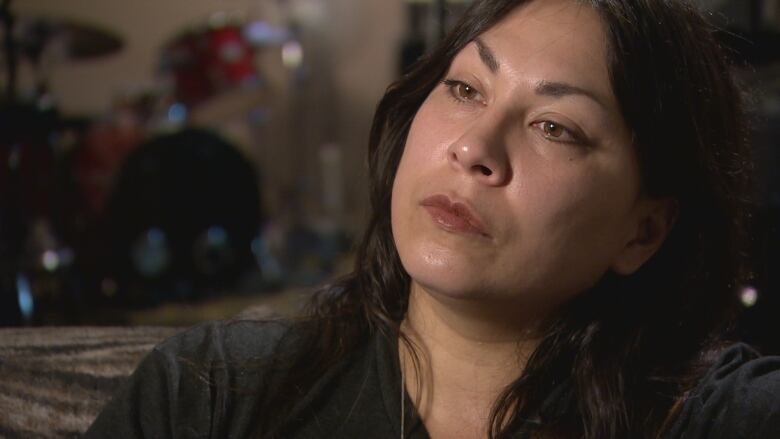'She was very broken': Edmonton daughter wants answers from MMIW inquiry
'It doesn't matter what she did in her life ... she did not deserve to be murdered'

Ruby Anne McDonald was a beautiful,broken woman.
After a childhood of violence, she tried to fashion a new life but even as she fled the past, demons pursued her.
Haunted by years of abuse, consumed by addiction, one day in1999 she was found crumpled at the bottom of the stairs in an Edmonton apartment building.
"It doesn't matter what she did in her life, or what she did to others," said herdaughter, StephanieHarpe, nowa successful musician and artist."She did not deserve to be murdered, and to diein such a violent way."
With the announcement this week of a national inquiry into missing and murdered Indigenous women, Harpe said shehopes the tragedy of her mother's death will be acknowledged, and perhaps her killer will be caught.
McDonald is one of an estimated 582 missing and murdered Indigenous women in Canada whose cases will now be subject to a national investigation.
Marion Buller, British Columbia's first female First Nations judge, will serve as chief commissioner of the five-member panel tasked by Ottawa to help, in the words of theminister of Indigenous and northern affairs, "put an end to this national tragedy."
'It's like a ghost'
"Historically, we've been let down, but I still have this hope,"Harpesaidof Wednesday's announcement."I'm hoping this will stop. It's astronomical, the numbers,and it just keeps happening. I want to help prevent this for other families."
She said news of the inquiry triggeredmixed emotions.
"This still affects me, every single day," she said. "It's like a ghost. It's always with me."
Harpe was 19 when she saw her mother for the last time.
"I regret ever letting her walk out that door," she saidof the night her mother headed out to a party with a man she knew.
'She tried to love us'
Her motherdid the best she could, and there were good times and bad.
"Mostly bad," she said.
"She tried to love us. She tried to raise us. But her addiction just kept coming through. Me and my father and my brother had a terrible life, surviving her.

The commission will examine the factors driving a systemic, high rate of violence against Indigenous women and girls, and the roles played byvarious institutions, including police forces, governments and coroners'offices.
'I just hope this works'
Harpehopes the panel will highlight the need for improved public awareness of Indigenous issues, outreach programming for young men and mandatory rehabilitation programs for offenders.
Without those measures, she has little faith the deadly trend can be reversed.
"I hope every crack and every crevice (in the system) is covered in this," she said of the inquiry. "I just hope that this works. That we can save lives."
More than any new program or intervention,Harpewantsvictims to beafforded the dignity and respect her mother was denied.
"I hope they stop taking our victims, our women and girls, and saying what kind of high-risk lifestyle they're in. Or labelling them. They should have their name with dignity."
"A lot of people are getting away with this horrible tragedy. There is no one being convicted of these crimes, hardly ever.
"These crimes aren't being taken seriously."
Harpe's opinion on the legal system is shaped by her family's struggle to find justice.
'They did not take me seriously'
She saidthe failure by police to acknowledge the facts of her mother's case derailed the investigation, and perhaps allowed thekiller to evade prosecution.
"There was no foul play acknowledged until the autopsy, and then it was taken as case. But not until then."
"This was first treated in a waythis is another drunken Indian that fell down the stairsthey did not take me seriously. And this is a huge problem."
"He got away with it. It all fell apart."
For a time, the pain of her mother's death,and the fruitless search for herkiller,became unbearable for Harpe.
"As soon as she passed, I went back into the addiction all over again, and tried to numb and hide my pain."
Clean and sober now for 16 years, Harpe has carved out a successful career as a musician and actress.
"I had followed in my mothers path," she said, "and I know she didn't want that for me.
"I admire her strength. And that's the strength that I draw from, to be the healed and well-rounded person that I am today.
"I know she protected me, and she's looking down on me. And she's proud."













_(720p).jpg)


 OFFICIAL HD MUSIC VIDEO.jpg)
.jpg)



























































































